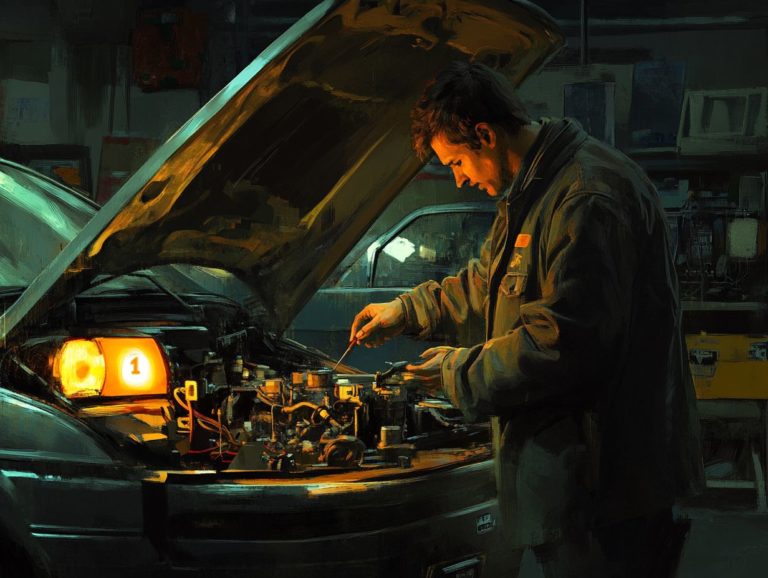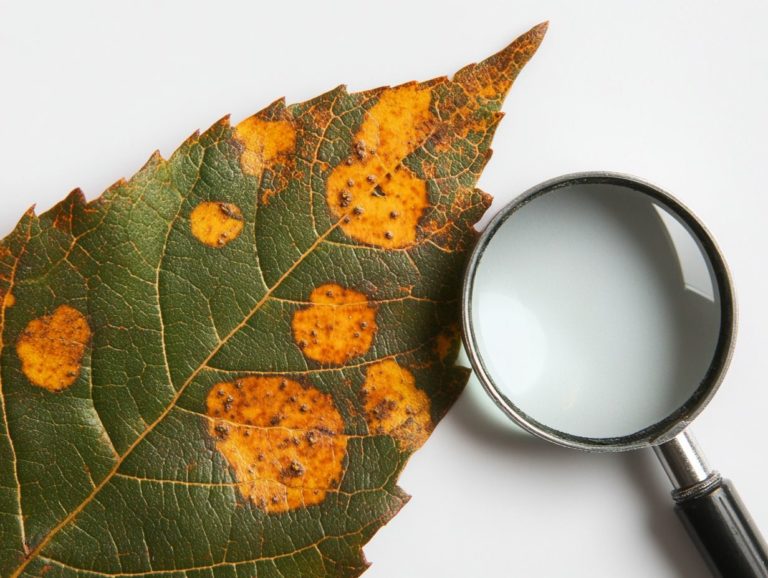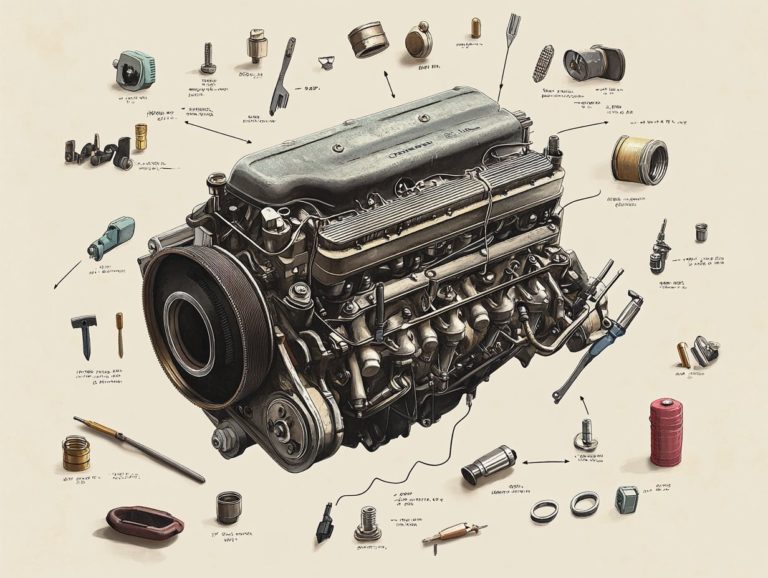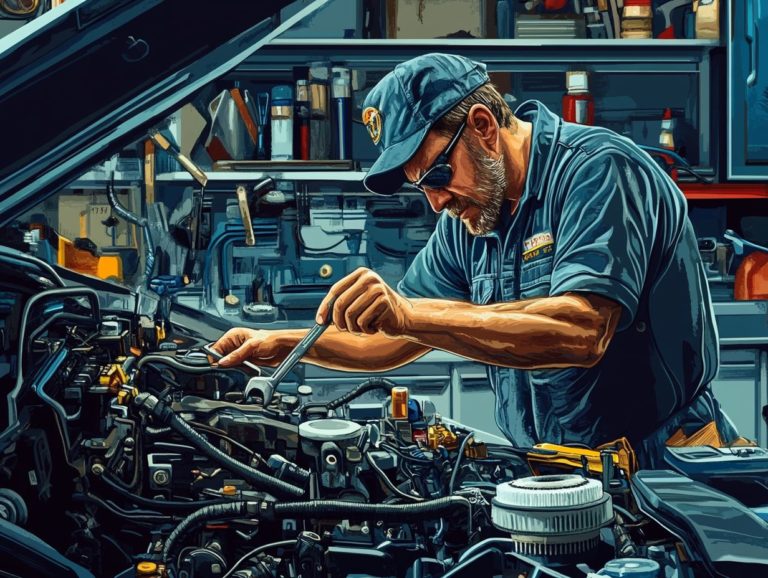Common Air Conditioning Repairs Explained
Is your air conditioner ready to tackle the summer heat? Air conditioning systems are essential for your comfort, particularly during those sweltering summer days. Like any mechanical device, they need regular maintenance to operate at their best.
This article delves into common AC repairs, covering everything from refrigerant leaks to thermostat malfunctions. It offers insights on whether to tackle issues yourself or call in the professionals. You’ll also discover key maintenance tips that can help prevent future problems.
Whether you consider yourself a seasoned DIY enthusiast or prefer to leave it to the experts, you’ll find valuable information here to ensure your AC runs smoothly.
Contents
- Key Takeaways:
- Why Regular Maintenance is Important
- Common AC Repairs and Solutions
- DIY vs Professional Repairs
- Preventing Future AC Repairs
- Frequently Asked Questions
- What are the most common air conditioning repairs?
- What causes refrigerant leaks in air conditioning units?
- Can I fix electrical issues in my air conditioning unit myself?
- How do I know if my air conditioning unit’s compressor has failed?
- Why should I change my air filters regularly?
- Can I prevent common air conditioning repairs?
Key Takeaways:
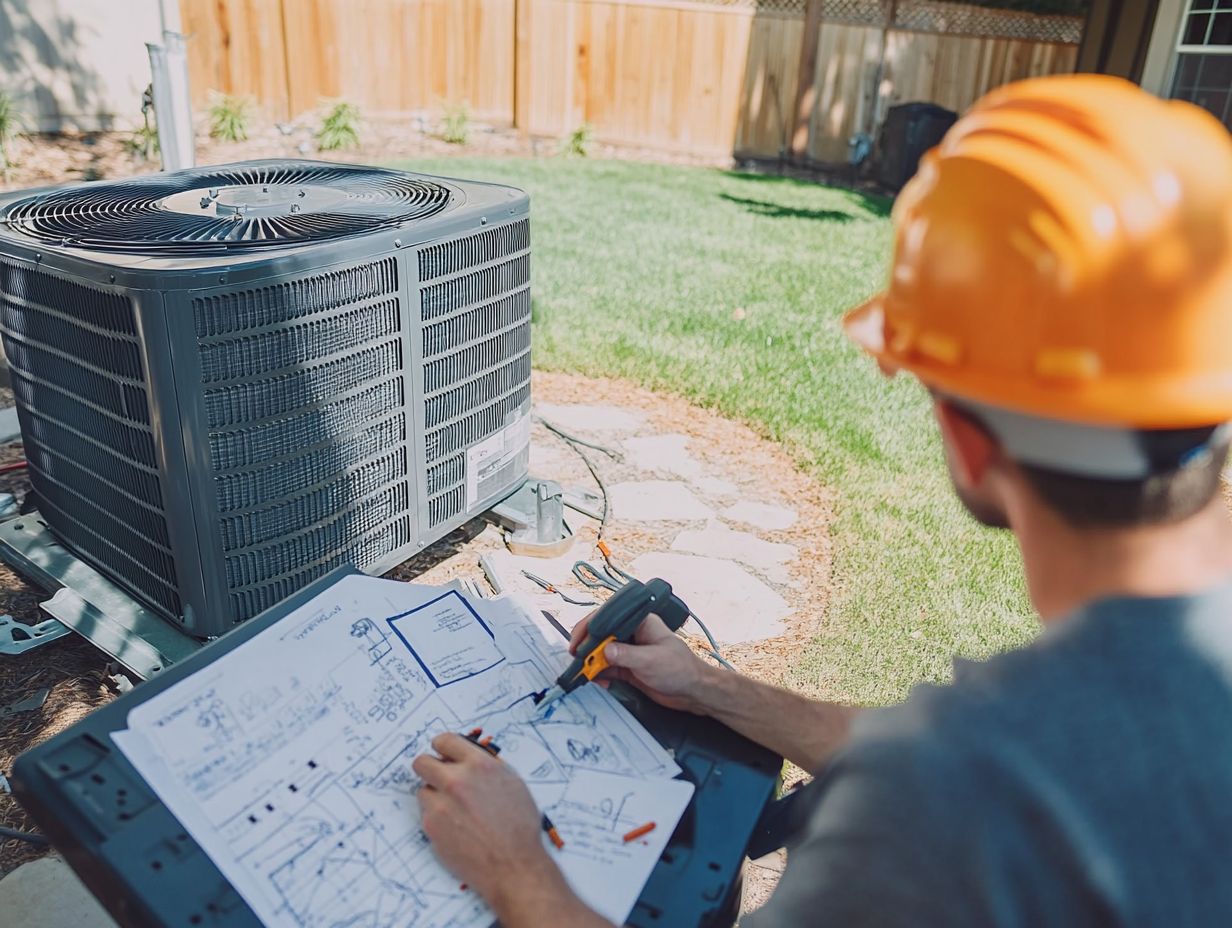
- Regular maintenance is crucial to avoid costly AC repairs in the long run.
- Common AC repairs include refrigerant leaks, compressor issues, electrical problems, and thermostat malfunctions.
- It’s important to know when to call a professional for AC repairs and to take safety precautions when attempting DIY repairs.
- To prevent future AC repairs, maintain your unit regularly and follow maintenance tips and strategies.
Why Regular Maintenance is Important
Regular maintenance of your air conditioning system is crucial for achieving optimal performance, elevating your indoor comfort, and extending the lifespan of your heating and cooling system (HVAC). In Gainesville, Florida, where summer temperatures can skyrocket, neglecting maintenance could lead to expensive repairs and reduced cooling efficiency.
Performing routine checks like cleaning or replacing air filters, inspecting ductwork for leaks, and monitoring refrigerant levels can significantly boost your system’s efficiency. These straightforward tasks not only enhance overall performance but also help you avoid major breakdowns that could result in hefty repair bills.
Regular maintenance also helps prevent issues like poor air quality, mold growth, and inconsistent temperatures throughout your home. Engaging a professional service ensures that any potential problems are identified early, granting you peace of mind and a reliably comfortable living space, especially during those sweltering months when your AC is working overtime.
Common AC Repairs and Solutions
Understanding the common problems that can impact air conditioning systems gives you the power to identify issues early and seek timely professional repairs. This ultimately minimizes discomfort and repair costs.
Frequent AC repairs often center around key components, such as the compressor, blower motor, and capacitor. If these aren t addressed promptly, they can lead to significantly higher average repair costs.
You can greatly benefit from a comprehensive troubleshooting guide to help navigate these challenges, which may include low refrigerant levels, clogged condensate drain lines, and electrical failures.
Refrigerant Leaks
Refrigerant leaks rank among the most prevalent issues faced in air conditioning systems. They result in diminished cooling efficiency and soaring energy costs. When the refrigerant level declines, your HVAC system struggles to sustain the desired indoor temperature, often necessitating a refrigerant recharge (adding more refrigerant).
Several factors can lead to these leaks, including wear and tear on older systems, improper installation, or damage from external sources. Be on the lookout for symptoms like inconsistent cooling, hissing sounds, and ice accumulation on the evaporator coils. These leaks not only hinder the performance of your HVAC unit but can also result in expensive repairs if they go unchecked.
It’s crucial to act quickly, not just to restore your system s efficiency but also to reduce its environmental impact. Many refrigerants contain greenhouse gases that significantly contribute to global warming. Thus, remaining vigilant and promptly addressing any signs of leaks is vital for both your system s longevity and the health of our planet.
Compressor Issues
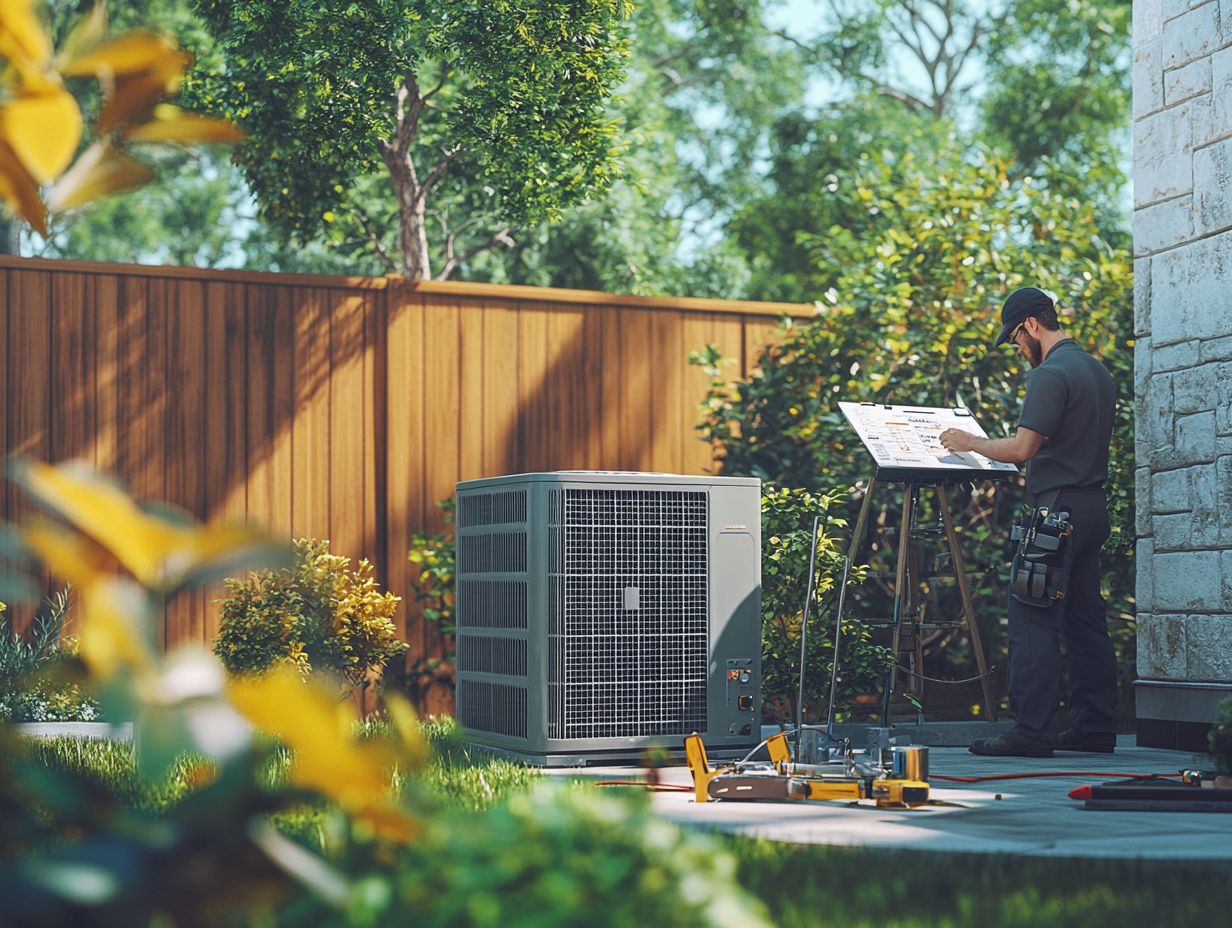
Compressor issues can significantly disrupt the cooling process of your air conditioning system. This can potentially lead to system failures or inefficient operation. The compressor plays a crucial role in circulating the fluid that cools the air and maintaining your home s temperature. Problems can stem from electrical issues or mechanical failures that require professional help.
You might notice common symptoms indicating compressor problems, such as unusual noises, inconsistent cooling, or the unit refusing to start at all. The potential causes can range from dirty coils and clogged filters to refrigerant leaks and faulty electrical connections.
Spotting these signs quickly can save you from costly repairs! Ignoring them can result in extensive damage and costly repairs, typically ranging from $300 to $1,500 depending on the severity. Seeking assistance from experienced technicians ensures an accurate diagnosis and efficient repairs, helping you avoid future expenses.
To prevent compressor issues, make regular maintenance a priority, including filter changes and system checks.
Electrical Problems
Electrical problems are often the culprits behind air conditioning failures. These can disrupt components like the blower motor or circuit breaker. Promptly identifying these issues can save you from extensive damage to your HVAC system and ensure that your cooling performance remains consistent.
Common concerns typically arise from faulty wiring, leading to overheating or shorts. Circuit breakers can trip and shut down the system unexpectedly. To troubleshoot, check the circuit breaker for any tripped switches and inspect the wiring for wear or loose connections. If you notice any frays or catch a whiff of something burning, it s essential to turn off the power immediately.
While you might tackle minor checks yourself if you have some knowledge, consult a professional technician if the problems persist or seem complex. Acting swiftly restores your comfort and can also extend the lifespan of your air conditioning unit.
Thermostat Malfunctions
Thermostat malfunctions can disrupt your indoor comfort levels. They often slip under the radar when troubleshooting air conditioning issues. If your thermostat isn’t accurately reading the temperature or fails to communicate effectively with your HVAC system, you may face inefficient cooling and higher energy costs.
Recognizing the signs of a faulty thermostat is crucial for maintaining a comfortable living environment. Common symptoms include erratic temperature swings, a continuously running HVAC system, or short-cycling, where the system frequently turns on and off. Factors like dust accumulation, worn-out batteries, or improper placement of the thermostat can contribute to these issues.
Here s how you can start fixing thermostat issues:
- Ensure the thermostat is clean and free of debris.
- Check the battery levels.
- Confirm it’s positioned away from heat sources or direct sunlight.
By properly setting your thermostat, you’ll not only enhance your comfort but also promote efficient operation of your HVAC system. This ultimately saves energy and reduces your utility bills.
DIY vs Professional Repairs
In the realm of air conditioning repairs, you may find yourself weighing the options between tackling the task yourself or enlisting a professional. While you can certainly handle smaller issues like swapping out air filters or unclogging drain lines many common problems demand the specialized expertise of a repair technician to ensure both safety and effectiveness.
Grasping the nuances of the repair job and recognizing the potential risks involved is essential for making an informed decision that best serves your home and comfort. Don t wait too long to address these issues!
When to Call a Professional
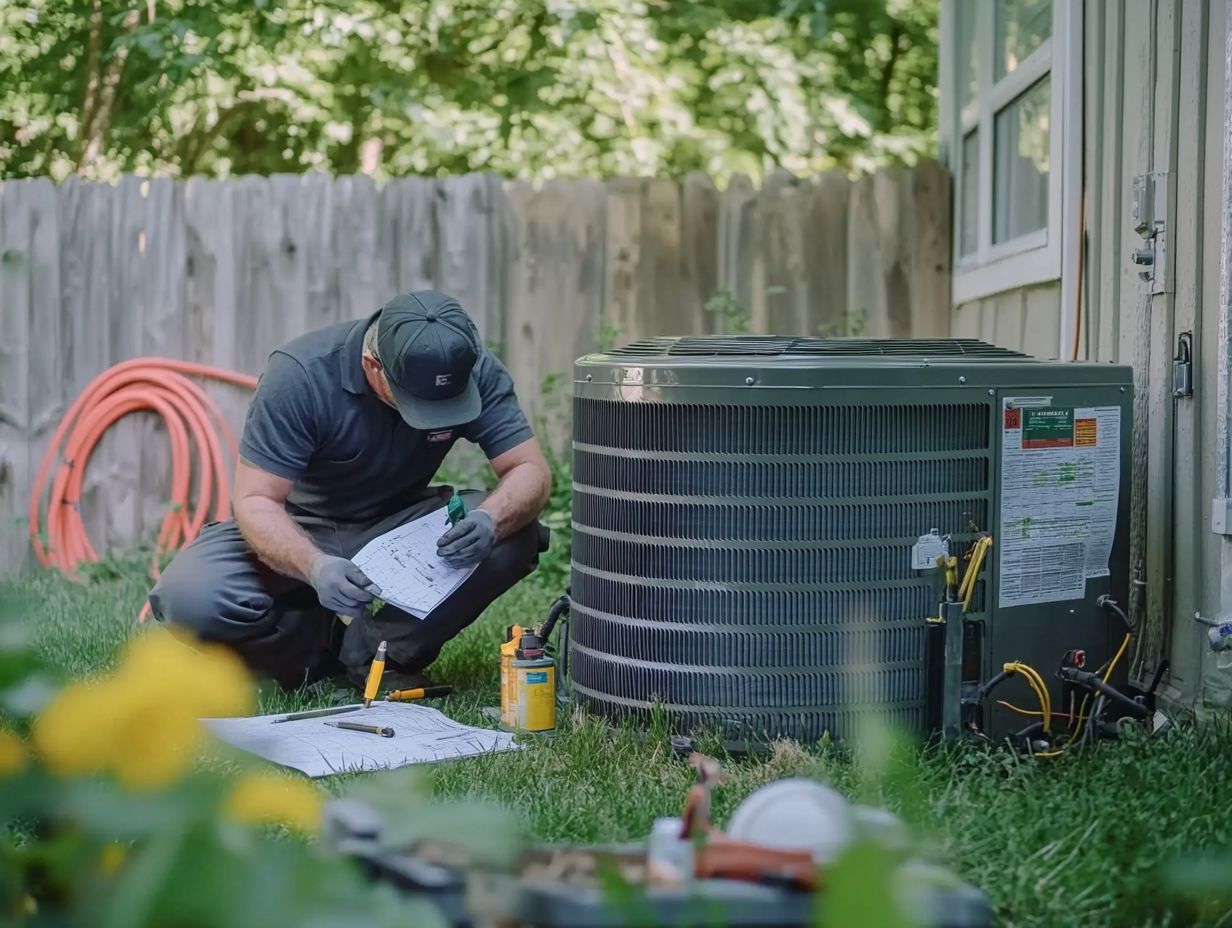
Knowing when to call in a repair professional is crucial for maintaining the efficiency and safety of your air conditioning system. Pay attention to signs like unusual noises, unresponsive thermostats, or persistent electrical issues. These are clear indicators that you should seek professional help to prevent further damage.
If you notice a spike in your energy bills without any change in your usage patterns, or if your air conditioning unit fails to cool your space despite being set to a low temperature, it s time to consult a trained technician. Addressing these issues promptly not only preserves your indoor comfort but also prevents more severe problems that could lead to costly repairs.
Ignoring these symptoms can significantly diminish your system s performance, ultimately affecting your home environment and finances.
Safety Precautions for DIY Repairs
Engaging in DIY repairs can be immensely satisfying, but it s essential to observe safety precautions to mitigate risks associated with electrical issues and potential equipment damage. By ensuring you use the correct tools, follow manufacturer guidelines, and recognize your skill limits, you can make a significant difference in the success of your repair efforts.
One of the first steps you should prioritize is turning off the power to your air conditioning unit at the circuit breaker. This simple action can prevent severe shocks and unintended damage.
Investing in tools specifically designed for AC repairs is crucial. Using the wrong equipment can complicate your process and create unsafe conditions. Don t forget to check when a task exceeds your comfort level; seeking professional assistance can save you time, money, and maximize safety.
By taking these precautions, you enhance not only the effectiveness of your DIY repairs but also contribute to maintaining a secure home environment.
Preventing Future AC Repairs
Implementing preventative maintenance strategies is essential for minimizing the risk of future air conditioning repairs. This ensures optimal indoor comfort year-round.
Conducting regular inspections, making timely filter changes, and utilizing professional maintenance services helps effectively identify and resolve common issues before they develop into costly repairs.
Maintenance Tips and Strategies
Implementing effective maintenance tips and strategies can significantly enhance the performance and longevity of your HVAC system. This keeps your indoor comfort uninterrupted while reducing the likelihood of common issues. Simple actions, such as changing filters regularly, cleaning the condenser coils, and scheduling annual check-ups with maintenance services, lead to a more efficient cooling process.
Beyond these fundamental practices, consider inspecting and sealing your ductwork to minimize airflow leaks. These leaks can drive up your energy costs and compromise cooling efficiency. Keeping the area around your outdoor unit clear of debris will help maintain optimal airflow, while monitoring your thermostat settings ensures the system operates at peak performance.
Regularly checking coolant levels can stop damage to your AC s compressor, a common and costly problem. Use these strategies to tackle AC issues before they become problems, ultimately contributing to a comfortable living environment and promoting energy savings.
Frequently Asked Questions
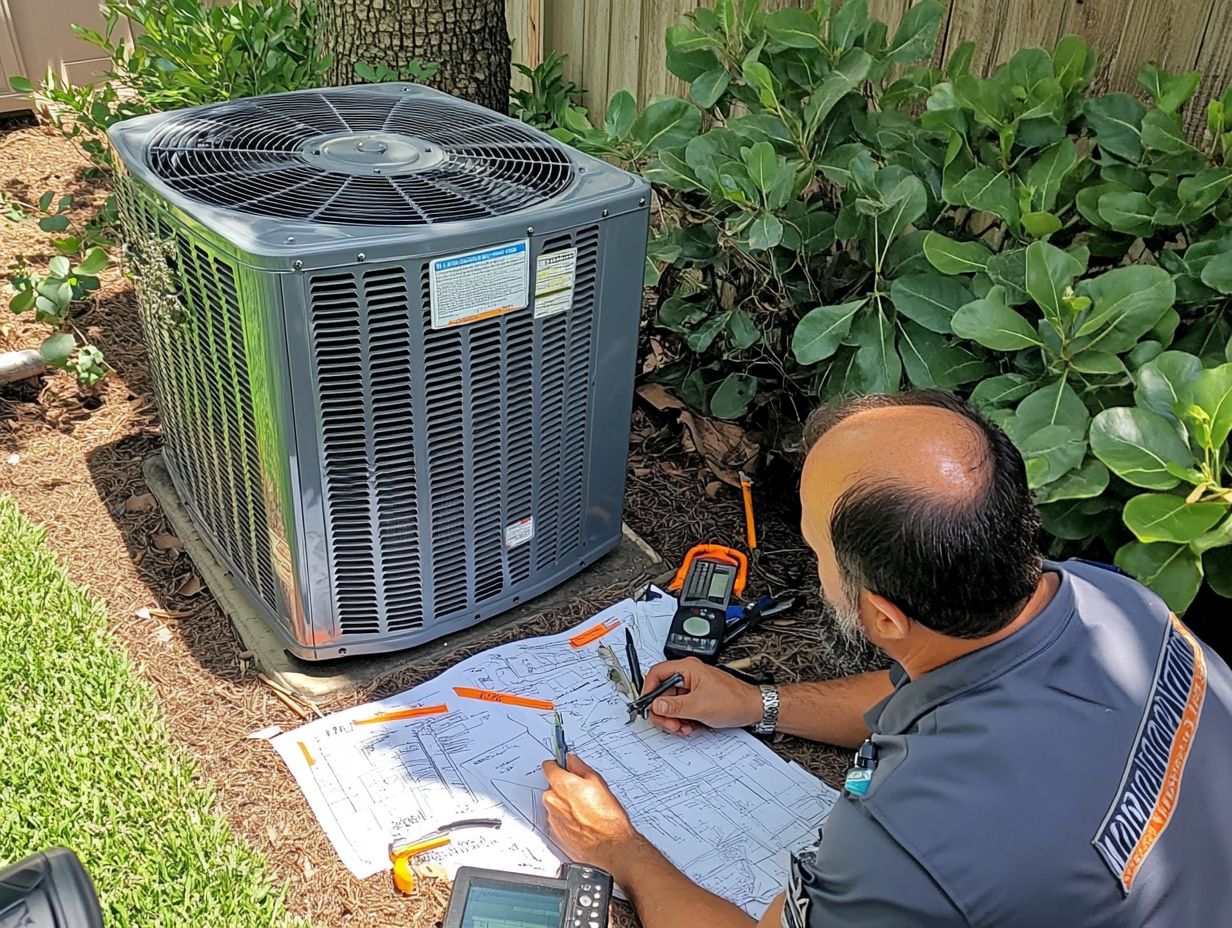
What are the most common air conditioning repairs?
The most common air conditioning repairs include refrigerant leaks, electrical issues, compressor failure, and understanding common cooling system repairs like dirty air filters.
What causes refrigerant leaks in air conditioning units?
Refrigerant leaks are often caused by corrosion, wear and tear, or improper installation of the unit.
Can I fix electrical issues in my air conditioning unit myself?
It’s not safe to fix electrical issues in your air conditioning unit yourself. It’s better to leave it to a professional.
How do I know if my air conditioning unit’s compressor has failed?
If your air conditioning unit isn’t producing cool air, strange noises may indicate a problem. Frequent cycling on and off usually means the compressor has failed.
Why should I change my air filters regularly?
Changing air filters regularly enhances your home’s air quality. It also helps avoid costly repairs down the line.
Can I prevent common air conditioning repairs?
While some repairs are unavoidable, you can reduce common issues. Act now! Regular maintenance and prompt attention to problems can help.


